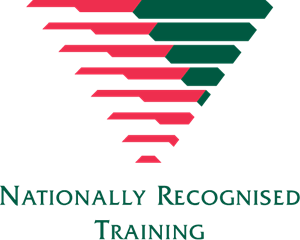People seeking a change in their health administration careers for many different reasons. It may be time to consider a career change if you:
- are miserable at work and find your job boring and unfulfilling;
- have a bad boss or are irritated by co-workers;
- would like to have more flexible work hours;
- believe your current career no longer reflects your skills or values;
- are dissatisfied with your current career direction; or
- wish to earn more money, just to name a few.
Making any sort of career change can be daunting, however transitioning into a completely new industry eg: the Health Industry may seem impossible! With effort, know-how and patience, career transitions are possible at any age. For those thinking it is time to take the plunge here are some tips to help you get started.
1. Plan to succeed in you Health Administration Career
Before you know where you are going, you need to know where you have been. Start by evaluating your current job satisfaction. Write down what you like and what you don’t like about your current or previous jobs. Ask yourself where your strengths lie, what you’re passionate about and what motivates you. Now, write down what your goals are with your new career (both long and short term goals). Do some research on what careers and positions you think you might enjoy, even if they seem like a stretch at first. Write down your goals, set timelines and take action.
2. Assess your skills
If you look carefully at your work history, you’ll find that a lot of what you have done in the past might be applicable in your new career. Abilities you can take from job to job or use in multiple careers, are called transferable skills. Think about the skills you have already established and how you can incorporate these skills into your new role. For example:
- Organisational skills
- Communication skills
- Basic skills
- People skills
- Computer and Technology skills
- Customer service skills
As you review these skills, take note of the skills you need to learn in order to make the transition into your new career.
3. Take a course
Consider undertaking some training in Medical Reception and Medical Terminology to refresh or build on your skills. Having the willingness and transferable skills is a start but ensuring you have the relevant up-to-date education is also important. Many courses are offered online or have study from home options so fitting in study time might not be as difficult as you think.
4. Get your foot in the door
If possible, get involved in volunteer or part-time employment in a Medical Practice in your new field. This will help you build experience and provide mentoring and networking opportunities.
5. First impressions count, so make it a good one!
Don’t underestimate how important it is to have a good resume that reflects your aspirations and clearly spells out that you are seeking a career change and focuses on your new goals. The first impression that a potential employer will have of you, is going to depend on how you present your resume and cover letter. This is going to be your one and only chance to capture a potential employer’s attention.
6. Prepare for interview
Interviews can be overwhelming for the most seasoned professional. It is important to remember that everyone who is participating in the interview process will be feeling the same way and your interviewer will be expecting you to have jitters or nerves so try to keep calm. Here are some key guidelines to get you started:
- Research the most asked interview questions and prepare your responses.
- Research the organisation before attending the interview. This will help you answer questions the interviewers may have — and help you stand out from less-prepared candidates.
- Compare your skills and qualifications to the job requirements so you can explain how they are a great match.
- Highlight any training you have completed in health or medical administration and include the units you successfully completed.
- Plan what to wear to present a professional image.
7. Childcare
If you are returning back to work you want to make the transition as smooth as possible for both you and your family. If you need to arrange care for your children remember that many childcare centres may not have vacancies and you may need to be added to a waiting list.
8. Finances
Career change can take longer than a normal job search. For that reason, consider how a new career could impact your finances. Consider starting a career change fund. Open a separate bank account and start making regular deposits. The more money you save up before making your career change, the easier and less stressful the process will be.
9. Be realistic
Patience and realistic expectations are key to successfully embarking on your career transition. Think of your career change as a journey, not a day-trip. Expect to encounter challenges along the way and remember your persistence will pay off.
10. You need to believe that it really can happen
Rid yourself from fears and insecurities. One of the hardest things with finding or changing careers is believing that you can do this new role. You have to redefine yourself. Once you believe it, others will too.



